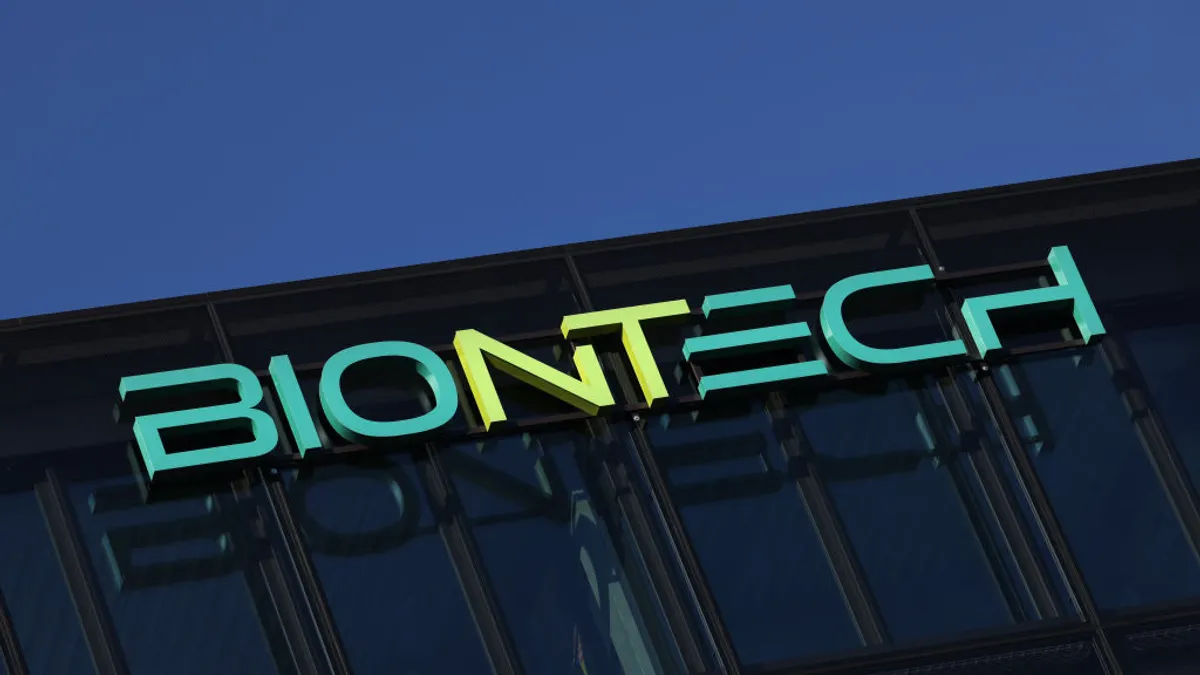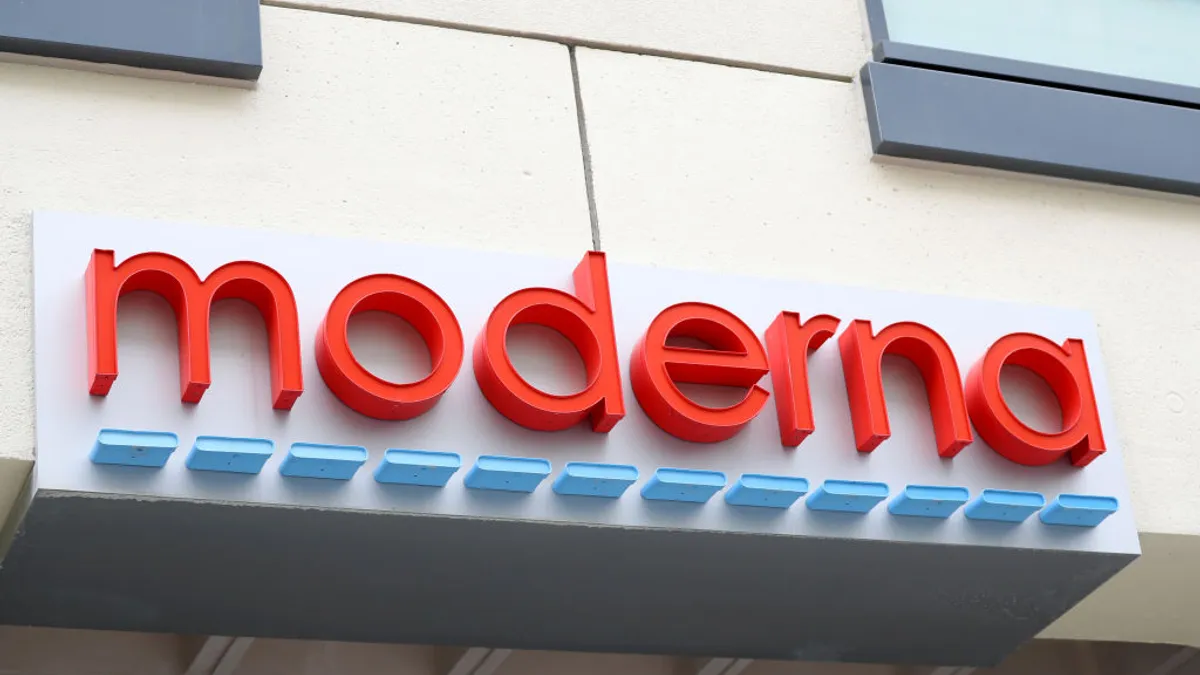Moderna and the BioNTech-Pfizer duo became heroes of the COVID-19 pandemic with vaccines that saved millions of lives and generated billions in revenue while also validating mRNA technology on a global scale.
But as sales and political support for mRNA vaccines waver, market leaders now vie for dominance in mRNA’s next act — therapeutics. However, pivoting from vaccines to treatments for cancer, cardiovascular disease and rare conditions requires a different playbook, and the household names in mRNA aren’t necessarily a lock for market dominance in this new landscape.
The pandemic accelerated mRNA technology for vaccines, said Jake Becraft, the CEO of Strand Therapeutics. But not necessarily for other uses.
“It really didn’t do anything to push forward the timeline of mRNA therapeutics,” he added. Drug developers are still working to overcome technical hurdles.

mRNA-based therapeutics hold tantalizing potential to target a broad range of diseases with a cost-effective approach. But developing those treatments brings unique challenges, including manufacturing and drug delivery, which is why progress in these areas has sometimes been more measured.
One of the chief hurdles for mRNA technology is that it's inherently short-acting, Becraft said. This isn’t a problem for vaccines, which rely on a quick hit. But therapeutics for long-term diseases require sustained durability, he said.
It can also be tricky to direct mRNA toward its intended target. Lipid nanoparticles used to deliver mRNA treatments are quickly scooped up by the liver, making it difficult to deliver the payload to other areas.
“How do you get to various areas of the body? How do you do it selectively?” Becraft said.
The pipeline of mRNA therapeutics may also need to contend with cooling enthusiasm for the technology.
Moderna, which continues its work on vaccines, recently announced plans to lay off 10% of its workforce following the dip in COVID-relarted demand and lackluster sales of its RSV vaccine.
HHS also recently deprioritized mRNA vaccine development, pulling $500 million in funding from projects, and voicing support for a shift to other vaccine platforms.
Vaccine skepticism has also been on the rise, which some predict could have downstream effects on the mRNA therapeutics market. However, Becraft said therapeutics may not face the same pushback.
“I think mRNA vaccines are viewed differently,” he said.
People facing a serious, even life-threatening condition are often more open to mRNA solutions. For example, one patient rejected the mRNA COVID vaccine but agreed to participate in Strand’s mRNA cancer therapy trial, Becraft said.
While demand for vaccines may be trending downward, the number of RNA trials broadly is rising. In the second quarter of this year, there were 38 new trial starts in the RNA category, which includes mRNA — a rise from 35 in the first quarter, according to a Citeline report.
A growing pipeline
Moderna’s mRNA therapeutics pipeline has dozens of candidates for melanoma, lung cancer, renal cancer and rare diseases such as glycogen storage disease, a metabolic disorder. The company, in collaboration with Merck & Co., is now in phase 3 with mRNA-4157 in melanoma and enrolling two phase 3 studies in lung cancer. It’s also testing the drug in phase 2 kidney cancer and bladder cancer, among others, according to a second-quarter update.
BioNTech, also still pursuing vaccines, is vying for a spot in the mRNA treatment landscape with an immunotherapy candidate in melanoma, BNT111. The FDA granted the phase 2 candidate fast track status. It’s also in late-stage trials with BNT113 in head and neck cancer, along with other candidates in colon, pancreatic and lung cancers.
In August, the company announced plans to acquire CureVac in the wake of a patent dispute settlement related to COVID vaccines. BioNTech said the acquisition will enhance manufacturing and commercialization capabilities for its mRNA cancer immunotherapy treatments.
Newcomers in the race
Legacy mRNA companies face potential competition from companies developing solutions to old mRNA problems.
Strand is experimenting with a targeted approach to treatment using self-replicating mRNA while leveraging what they call a “smart switch” to activate only in tumor cells, sparing healthy cells. The company recently secured $153 million in series B funding, even amid a significant contraction in biotech investment, showing enthusiasm for the platform, Becraft said.
In May, Strand released promising interim phase 1 results for its lead candidate STX-001 in melanoma and other solid tumors. In addition to demonstrating tolerability, the monotherapy trial exceeded expectations by producing both complete and partial responses in patients, stabilizing some tumors.
“In phase 1, you're dealing with very sick patients, and they're not coming to a first-in-human trial because there's a lot of options left on the table,” Becraft said. “So, you don't necessarily expect to see any big responses.”
Based on the favorable early-stage results, the company is now zeroing in on a preferred dose. It’s also refining drug administration and expanding the patient population. They’re planning to prioritize melanoma.
“That's not the only indication we saw responses in, but it is the one where we saw a number of responses, and where we think there's a very high unmet medical need, but also it is easily accessible for the makeup of our first drug,” Becraft said.
The biotech is looking ahead to phase 2 and advancing additional drugs, including a second-generation IV infusion therapy that could become the first of its kind that doesn’t target the liver, he said.
Other companies are also making headway.
Arcturus Therapeutics, which is focused on rare diseases affecting the liver and respiratory system, reported that its platform achieved proof-of-concept with positive interim results from the phase 2 trial of ARCT-810. The drug was tested in people with a genetic defect that causes ammonia to accumulate in the blood. The company is also working with the Cystic Fibrosis Foundation on a drug and plans to release two cohorts of phase 2 data for the condition this month.
Nuntius Therapeutics, which emerged from stealth last year boasting a partnership with Taiho Pharmaceuticals, says its platform can create mRNA cancer immunotherapies that are less likely to cause an immune system reaction and are potentially better at reaching non-liver targets.
If successful, these advances may eventually benefit more than this singular technology, Becraft said. Strand’s goal is to one day expand its platform to provide the infrastructure needed to develop other types of cell and gene therapies, from CRISPR to CAR-T, which have been hindered by delivery and technical challenges mRNA technology could solve, he said. Over the next 10 to 15 years, this could lead to expanded opportunities with other companies.
“We want to enable that future of medicine and build that with a whole host of partners,” Becraft said.


















